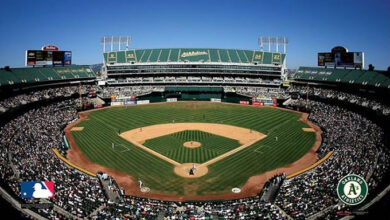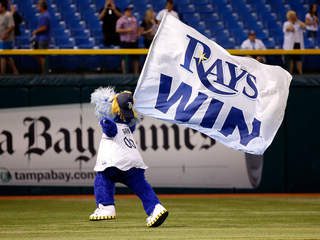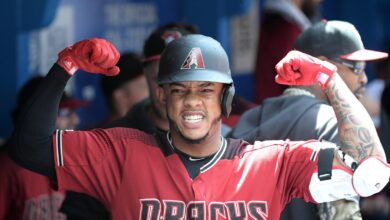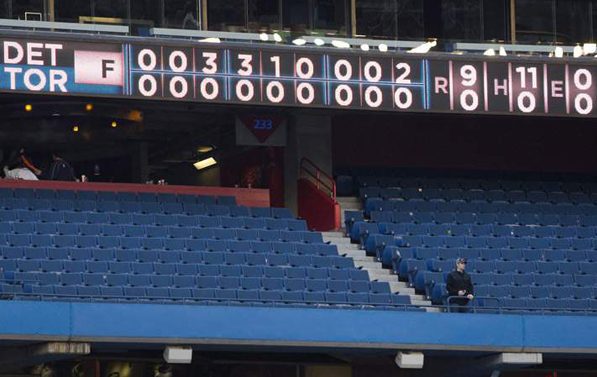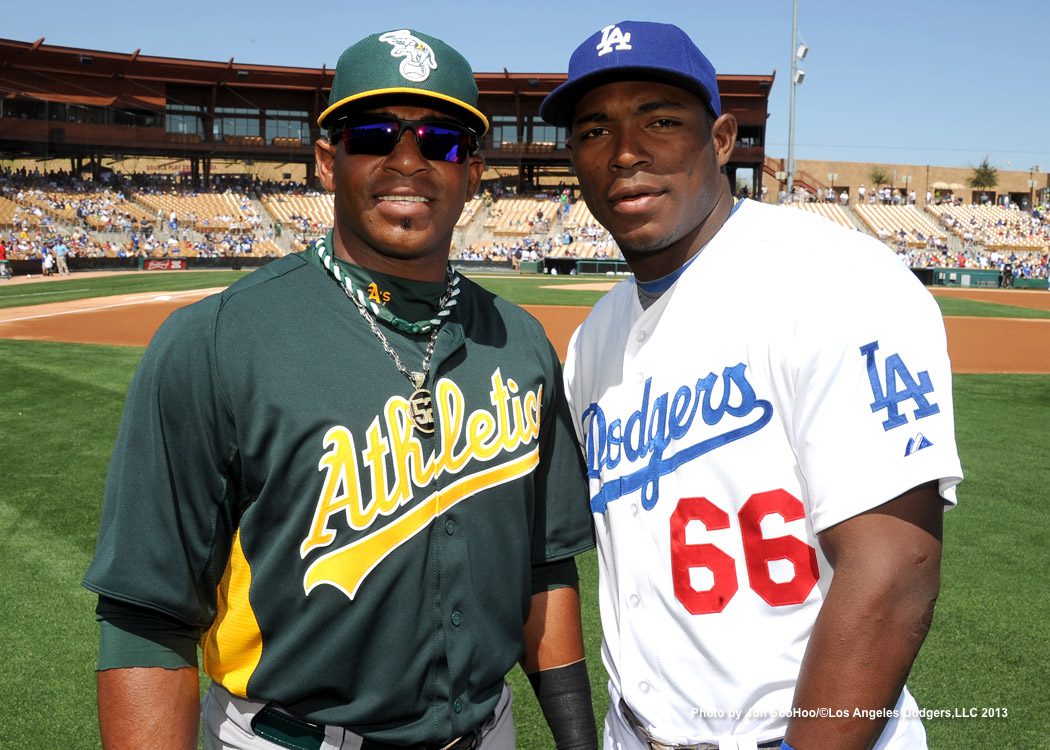

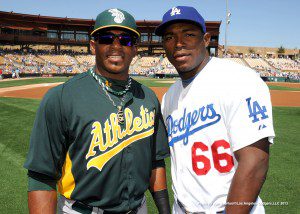
Since there’s been a renewed buzz circulating around Cuban baseball players recently, let’s review the notable signings and overall picture.
As we all know, 2013 was a big year for Cuban-born players in the big leagues. A pair of gifted young athletes, Jose Fernandez and Yasiel Puig, were first and second in the National League ROY honors. Furthermore, Yoenis Cespedes and Yunel Escobar led their respective teams, the Oakland A’s and Tampa Bay Rays, in another trip to the postseason. And Leonys Martin finally performed to the best of his ability, although his club, the Texas Rangers, still couldn’t get it done.
Now, here are the details on the top transactions. Miguel Alfredo Gonzalez (not to be confused with Mexico’s Miguel Gonzalez), secured a three-year, $12 million pact with the Philadelphia Phillies, despite his twice-repaired right elbow. And if the 26-year-old fork-ball specialist can rekindle the magic he displayed two years ago in the Cuban league, it will be a sound investment for embattled Philadelphia General Manager Ruben Amaro Jr. What might help Gonzalez succeed is the Phillies recent re-signing of veteran catcher Carlos Ruiz.
The Los Angeles Dodgers, who were once in the hunt to sign Gonzalez, were happier to land Alexander Guerrero, also 26, a solid middle infielder with some pop in his bat. Penciled in to play second base next season and team up with Hanley Ramirez, Guerrero was awarded a $10 million signing bonus and could earn an annual salary $8 million with incentives.
Then, just this month, the Chicago White Sox inked slugging first baseman Jose Abreu to a blockbuster, six-year deal worth $68 million. The 6′-3″, 250-pound powerhouse will join fellow defectors Dayan Viciedo and Alexi Ramirez on Chicago’s South Side, and is sure to attract plenty of Latino fans from the surrounding neighborhoods. The Sox could be sticking their necks out in offering that kind of money. But Abreu is a former MVP in Cuba and scouts are confident he can make a fairly smooth transition to hit major-league pitching.
So, what does all this mean? Is this explosion of Cuban baseball players a growing trend that could pose a security threat, or even ruin our national pastime?
Editor’s Note: Continue reading on page two by clicking on the link at the top of the article.
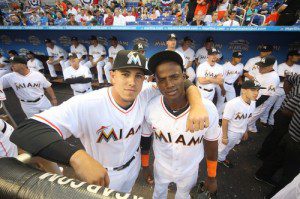
Don’t lose any sleep over it.
I’d rather talk about the common bond these men all share. They are all survivors who escaped the iron fist of Fidel Castro and the ruthless Cuban regime. It took Puig at least six attempts to finally gain freedom in Mexico, at least to his recollection. Guerrero and his brother, Michael, tried to dodge authorities twice before landing in Haiti, where Abreu also was granted asylum. All have said “no mas” to an oppressive government, electing to risk their lives like Orlando “El Duque” Hernandez did in a leaky boat on Christmas Day in 1997.
Since it has become more and more difficult for Cuba to retain its best athletes, the government attempted an experiment this year after the World Baseball Classic. They sent several players to try out for the Campeche Piratas, a triple-A team in the Mexican summer league. All were cut except Alfredo Despaigue, 27, a home-run hitting outfielder. Despaigue was made available to play 38 games with Campeche, but was forced to donate 20 percent of his wages to the National Sports Institution in Cuba.
If the United States ever lifted the longstanding embargo it has against Cuba, rumors from the island are surfacing that a similar agreement might be pursued with Major League Baseball. In other words, Cuban baseball players could be made available on the open market as international free agents, so long as the Cuban government could keep a percentage of each player’s signing bonus and salary. Also, those authorities would dictate to MLB when the Cuban baseball players could suit up or were needed to return to Cuba for planned baseball activities.
No, this isn’t a joke. I’m dead serious.
But here’s the reality check: The Cuban national team is not the dominant force it was 20 years ago, especially in the last decade. A parade of brash young Cuban baseball players, led by Fernandez, Puig, Miami’s Adeiny Hechavarria and the Chicago Cubs prize prospect, Jorge Soler, have escaped and drained the future crop of prospects. And there are even fewer veterans left to carry the Communist torch, because an athlete’s career is too short and the temptation to leave a land without hope is much too enticing.
“There are only five or six good players left now in Cuba,” Guerrero flatly admits. “The talent pool is very thin.”


